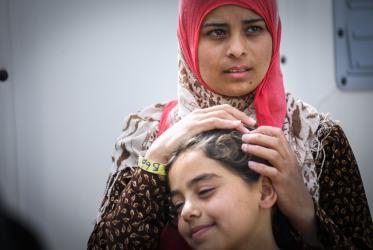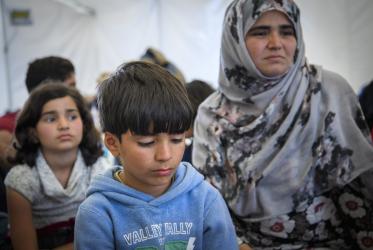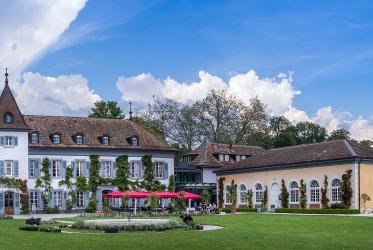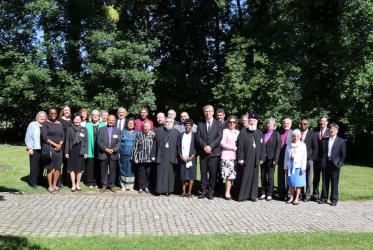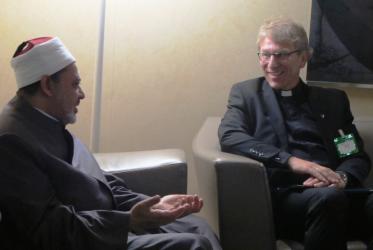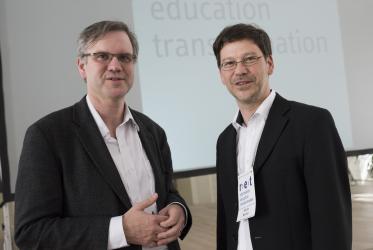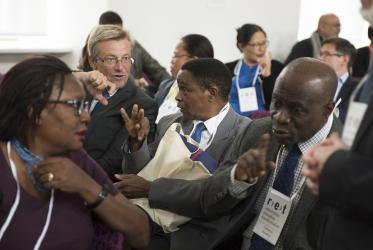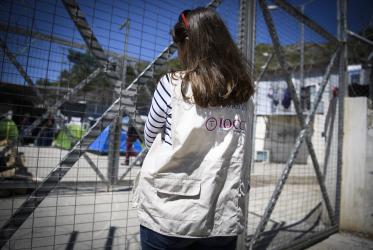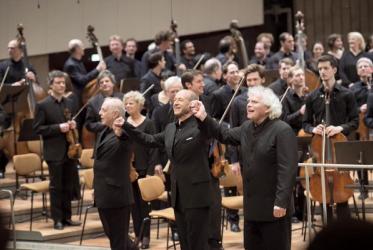Displaying 41 - 60 of 79
01 February 2018
Bishop Helga - diaconal apostle
22 December 2017
Digitizing of Faith and Order Papers underway
23 July 2017
WCC students study what makes a peace communicator
18 July 2017
WCC Executive Committee to focus on unity
08 June 2017
Dialogue flourishes between WCC, Muslim Council of Elders
30 September 2016
Hielke Wolters: Apostle of mission strategies
01 August 2016
Refugees in Berlin get dose of culture
10 March 2016
Afghan filmmaker sees Berlin as home — for now
10 March 2016
